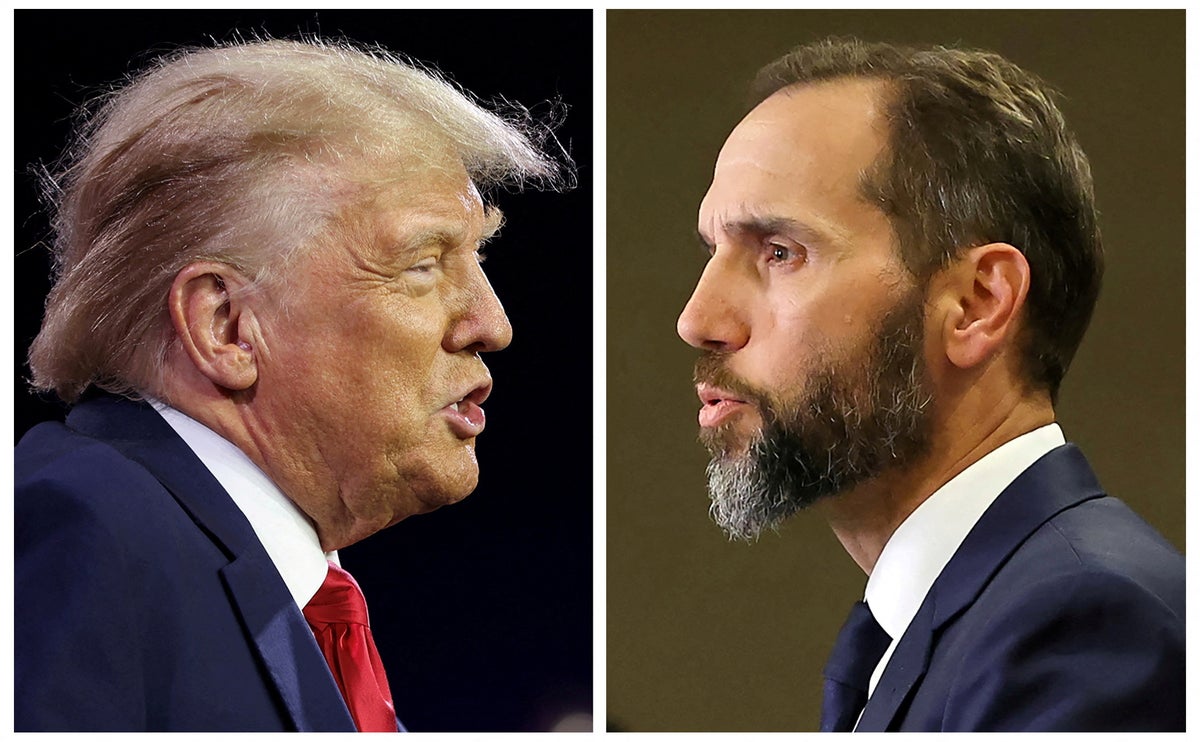
The special counsel investigating Donald Trump’s efforts to overturn the 2020 presidential election results obtained a search warrant for the former president’s Twitter account in January, according to newly unsealed records.
Twitter was prohibited from telling Mr Trump about the search, but the platform – now called “X” – was fined $350,000 for failing to meet the deadline to produce records under court order.
The company ultimately produced the records three days after that deadline, according to the filing.
Twitter and the office of US Department of Justice special counsel Jack Smith spent several months debating whether to inform Mr Trump about the warrant, a dispute that surfaced with a Washington DC appeals court’s unsealing of a decision that upheld a lower court ruling to prohibit the platform from telling the former president about the case.
A federal court agreed there were “reasonable grounds to believe” that disclosing the warrant would “seriously jeopardize the ongoing investigation” by giving him “an opportunity to destroy evidence, change patterns of behavior, [or] notify confederates,” according to the decision.
A footnote adds that the court “found reason to believe” that Mr Trump could “flee from prosecution”.
“The government later acknowledged, however, that it had ‘errantly included flight from prosecution as a predicate’ in its application,” the footnote adds. “The district court did not rely on risk of flight in its ultimate analysis.”
Twitter initially “asserted that the nondisclosure order was facially invalid under the First Amendment,” and informed prosecutors that it would not comply with the warrant until the district court weighed in, according to the recently unsealed filing.
Following several delays and attempts to avert the order, Twitter was found in civil contempt and fined $350,000 on 3 March. The company’s appeals were denied, and it paid the sanction into an escrow account maintained by the district court clerk’s office, according to the filing.
Mr Trump has pleaded not guilty to three criminal conspiracy charges and a charge of obstruction for his attempts to overturn 2020 election results.
The 45-page federal indictment outlines a multi-state scheme built on a legacy of lies and conspiracy theories to undermine the democratic process. He appeared in a federal courtroom in Washington DC on 3 August to plead not guilty to the charges as he continues to campaign for the 2024 Republican nomination for president casting himself as a victim of political persecution by Joe Biden, whom Mr Trump sought to prevent from becoming president.
Prosecutors alleged that Mr Trump and six co-conspirators relied on knowingly false claims about election fraud to pressure state lawmakers and officials to subvert election outcomes through a so-called “alternate” elector scheme, then relied on the Justice Department’s authority to carry out the plan.
Mr Trump and others also are accused of pressuring then-Vice President Mike Pence to reject the results during a joint session of Congress on 6 January 2021, as a mob of Mr Trump’s supporters stormed the US Capitol, obstructing the ceremony and giving Mr Trump’s allies another window to press lawmakers to oppose the results and send them back to state legislatures.
Prosecutors have requested a protective order to prevent Mr Trump from publicly disclosing evidence as he continues to rely on the criminal indictments against him for his 2024 campaign and fundraising efforts.
US District Judge Tanya Chutkan has scheduled a hearing on that order for 10am ET on 11 August.







